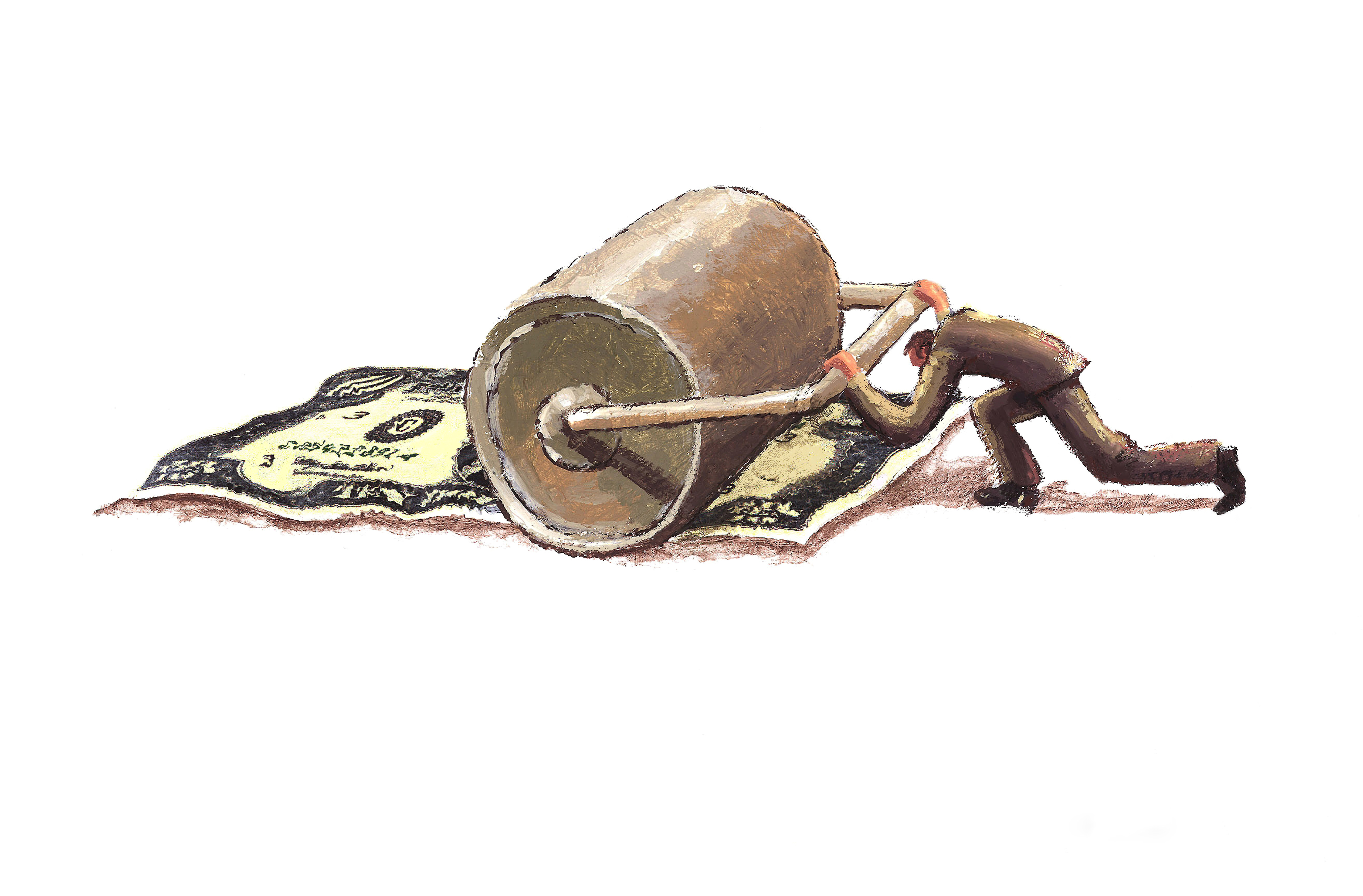Democrats keep getting rolled by Republicans on the deficit. When will they learn?
On the baffling cowardice of the austerity Democrats


A free daily email with the biggest news stories of the day – and the best features from TheWeek.com
You are now subscribed
Your newsletter sign-up was successful
The years 2010 and 2011 were an infuriating time to be a liberal — particularly on the economy.
After a brief period early in the Obama presidency in which Keynesian stimulus measures were understood and implemented, just about the entire political elite pivoted on a dime and began demanding immediate austerity. Though the Great Recession was not even close to being overcome — unemployment did not peak until October 2009, and then came down with grinding slowness — President Obama and just about everyone to his right effectively agreed that reducing the budget deficit was more important than restoring employment and growth.
They got their way, too. The budget deficit is coming down fast — at the cost of literally trillions in wasted output, millions of jobs not created, and hundreds of Democrats driven out of office for being in power at a time of economic crisis.
The Week
Escape your echo chamber. Get the facts behind the news, plus analysis from multiple perspectives.

Sign up for The Week's Free Newsletters
From our morning news briefing to a weekly Good News Newsletter, get the best of The Week delivered directly to your inbox.
From our morning news briefing to a weekly Good News Newsletter, get the best of The Week delivered directly to your inbox.
Today, kinda-sorta full employment is finally here, and another presidential election is in the offing. Republicans — who spent the last seven years howling about how "we're broke" and therefore need to cut spending immediately — have memory-holed the deficit, and are drawing up plans for gigantic tax cuts for the rich. Democrats should remember this the next time they feel like deficit cutting ought to come before jobs.
The Democratic austerians are a baffling bunch, constantly cowering before conservatives. Here's a particularly striking example.
It comes from Neera Tanden, the head of the influential, left-leaning, Clinton-aligned think tank the Center for American Progress. In an October 2011 email conversation with Faiz Shakir leaked to The Intercept, she argued in favor of forcing Libya to pay back the cost of the American intervention, because:
We have a giant deficit. They have a lot of oil. Most Americans would choose not to engage in the world because of that deficit. If we want to continue to engage in the world, gestures like having oil rich nations partially pay us back doesn't seem crazy to me.Do we prefer cuts to Head Start? Or WIC? Or Medicaid? Because we live in deficit politics, and that's what is happening and will be happening even more. [The Intercept]
Setting aside the argument over whether the Libya intervention was a good idea, or whether it's ever justified to pillage poor nations that happen to be resource-rich (uh, no), the striking thing about this argument is how it utterly surrenders to the conservative framework on austerity and deficit spending. Unemployment was 8.8 percent in October 2011. Ten-year treasury bonds were selling at about 2 percent — making them free when you factor in inflation (and a bit later literally less than nothing). Essentially, all the key economic indicators were screaming for more government investment, to put idle resources back to work and provide a safe, liquid store of value for savers.
A free daily email with the biggest news stories of the day – and the best features from TheWeek.com
But nope! It's either Medicaid or our "humanitarian" interventions, because deficit politics.
Fast forward four years to today, and every Republican presidential candidate is building a tax plan that blows a colossal hole in the budget. Even the conservative Tax Foundation finds that over 10 years, Jeb Bush's plan will increase the national debt by $3.7 trillion, Marco Rubio's by $6.1 trillion, and Donald Trump's by $12 trillion.
Incorporating heroic supply-side growth projections, they shave a bit off those numbers, but there is no reason to believe them. George W. Bush's massive regressive tax cuts utterly failed to deliver their promised growth surge; instead he presided over the worst growth and job creation in postwar history. (Though capital gains and dividend tax cuts did make it easier for shareholders to suck money out of companies.) A more realistic analysis finds that Rand Paul's budget will increase the debt by $15 trillion over a decade.
The upshot here is that austerity politics is a one-way street. When times are bad, Democrats box themselves into thinking that their social justice priorities are going to have to be sacrificed at the altar of the almighty deficit, but Republicans feel no such compunction. Instead they constantly bellyache about how spending they don't like is going to lock our children into permanent debt slavery, but forget all about it when they get a chance to cut taxes on the rich. As Dick Cheney once said, "Ronald Reagan proved deficits don't matter."
Part of the problem here, I suspect, is that while Republicans may be utterly duplicitous on deficits, many elite Democrats actually believe that austerity is more important than jobs or growth. They're wrong about this — in fact it appears recent austerity has actually worsened the long-term fiscal position — but perhaps more important, they should realize that all they can possibly accomplish with deficit reduction is creating more budget headroom for future Republican tax cuts.
Ryan Cooper is a national correspondent at TheWeek.com. His work has appeared in the Washington Monthly, The New Republic, and the Washington Post.
